Selenium Benefits: Here Are 7 That Are Proven by Science
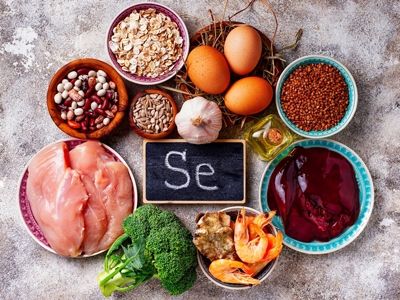
Though you may have never heard of selenium, this amazing nutrient is vital to your health.
Selenium is an essential mineral, meaning it must be obtained through your diet.
It’s only needed in small amounts but plays a major role in important processes in your body, including your metabolism and thyroid function.
This article outlines 7 health benefits of selenium, all backed by science.
1. Is important for thyroid health
Selenium is important for the proper functioning of your thyroid gland. In fact, thyroid tissue contains a higher amount of selenium than any other organ in the human body.
This powerful mineral helps protect the thyroid against oxidative damage and plays an essential role in the production of thyroid hormones.
A healthy thyroid gland is important, as it regulates your metabolism and controls growth and development.
Selenium deficiency has been associated with thyroid conditions like Hashimoto’s thyroiditis, a type of hypothyroidism in which the immune system attacks the thyroid gland.
An observational study including over 6,000 people found that low serum levels of selenium were associated with an increased risk of autoimmune thyroiditis and hypothyroidism.
Additionally, some studies have shown that selenium supplements may benefit people with Hashimoto’s disease.
One review concluded that taking selenium supplements daily for three months resulted in lower thyroid antibodies. It also led to improvements in mood and general well-being in those with Hashimoto’s disease.
However, more research is needed before selenium supplements can be recommended for those with Hashimoto’s disease.
2. Acts as a powerful antioxidant
Antioxidants are compounds in foods that prevent cell damage caused by free radicals.
Free radicals are normal byproducts of processes like metabolism that are formed in your body daily.
They often get a bad rap, but free radicals are essential for your health. They perform important functions, including protecting your body from disease.
However, things like smoking, alcohol use, and stress can cause an excess of free radicals. This leads to oxidative stress, which damages healthy cells.
Oxidative stress has been linked to chronic conditions like heart disease, Alzheimer’s, and cancer, as well as premature aging and the risk of stroke.
Antioxidants like selenium help reduce oxidative stress by keeping free radical numbers in check.
They work by neutralizing excess free radicals and protecting cells from damage caused by oxidative stress.
For example, one study found that oral selenium supplements improved overall quality of life and reduced radiation-induced diarrhea in women with cervical and uterine cancer.
3. May protect against heart disease
A diet rich in selenium may help keep your heart healthy, as low selenium levels have been linked to an increased risk of heart disease.
In an analysis of 25 observational studies, a 50% increase in blood selenium levels was associated with a 24% reduction in the risk of heart disease.
Selenium may also lower markers of inflammation in your body — one of the main risk factors for heart disease.
For example, a review of 16 controlled studies including over 433,000 people with heart disease showed that taking selenium supplements decreased levels of the inflammatory marker C-reactive protein (CRP).
Additionally, it increased levels of glutathione peroxidase, a powerful antioxidant.
This indicates that selenium may help lower heart disease risk by reducing inflammation and oxidative stress in your body. Oxidative stress and inflammation have been linked to atherosclerosis, or the buildup of plaque in arteries.
Atherosclerosis can lead to dangerous health problems like strokes, heart attacks, and heart disease.
Incorporating selenium-rich foods into your diet is a great way to keep levels of oxidative stress and inflammation to a minimum.
4. May reduce your risk of certain cancers
In addition to decreasing oxidative stress, selenium may help lower the risk of certain cancers.
This has been attributed to selenium’s ability to reduce DNA damage and oxidative stress, boost your immune system, and destroy cancer cells.
A review of 69 studies that included over 350,000 people found that having a high blood level of selenium was associated with a lower risk of certain types of cancer, including breast, lung, colon, and prostate cancers.
It’s important to note that this effect was only associated with selenium obtained through foods, not supplements.
However, some research suggests that supplementing with selenium may reduce side effects in people undergoing radiation therapy.
5. Helps prevent mental decline
Alzheimer’s disease is a devastating condition that causes memory loss and negatively affects thinking and behavior. It’s the sixth-leading cause of death in the United States.
The number of people with Alzheimer’s disease is growing. Thus, finding ways to prevent this degenerative disease is imperative.
Oxidative stress is believed to be involved in both the onset and progression of neurological diseases like Parkinson’s, multiple sclerosis, and Alzheimer’s.
Several studies have shown that patients with Alzheimer’s disease have lower blood levels of selenium.
Additionally, some studies have found that antioxidants in both foods and supplements may improve memory in patients with Alzheimer’s.
One small study found that supplementing with one selenium-rich Brazil nut per day improved verbal fluency and other mental functions in patients with mild cognitive impairment.
What’s more, the Mediterranean diet, which is rich in high-selenium foods like seafood and nuts, has been associated with a lower risk of developing Alzheimer’s disease.
6. Boosts your immune system
Your immune system keeps your body healthy by identifying and fighting off potential threats. These include bacteria, viruses, and parasites.
Selenium plays an important role in the health of your immune system. This antioxidant helps lower oxidative stress in your body, which reduces inflammation and enhances immunity.
Studies have demonstrated that increased blood levels of selenium are associated with enhanced immune response.
On the other hand, deficiency has been shown to harm immune cell function and may lead to a slower immune response.
Studies have also associated deficiency with an increased risk of death and disease progression in people with HIV, while supplements have been shown to lead to fewer hospitalizations and an improvement in symptoms for these patients.
Additionally, selenium supplements may help strengthen the immune system in people with influenza, tuberculosis, and hepatitis C.
7. May help reduce asthma symptoms
Asthma is a chronic disease that affects the airways that carry air in and out of the lungs.
These airways become inflamed and begin to narrow, causing symptoms like wheezing, shortness of breath, chest tightness, and coughing.
Asthma has been associated with increased levels of oxidative stress and inflammation in the body.
Due to selenium’s ability to reduce inflammation, some studies suggest that this mineral may help reduce asthma-related symptoms.
Research suggests that people who have asthma have lower blood levels of selenium.
In fact, one study showed that asthmatic patients with higher levels of blood selenium had better lung function than those with lower levels.
Selenium supplements may also help reduce asthma-related symptoms.
For example, one study found that giving people with asthma 200 mcg of selenium per day reduced their use of the corticosteroid medications used to control their symptoms.
However, research in this area is conflicting, and larger studies are needed to fully understand selenium’s role in the development and treatment of asthma.
Best dietary sources of selenium
Fortunately, many healthy foods are high in selenium.
The following foods are great sources:
Oysters: 238% of the DV in 3 ounces (85 grams)
Brazil nuts: 174% of the DV in one nut (5 grams)
Halibut: 171% of the DV in 6 ounces (159 grams)
Yellowfin tuna: 167% of the DV in 3 ounces (85 grams)
Eggs: 56% of the DV in 2 large eggs (100 grams)
Sardines: 46% of the DV in 4 sardines (48 grams)
Sunflower seeds: 27% of the DV in 1 ounce (28 grams)
Chicken breast: 12% of the DV in 4 slices (84 grams)
Shiitake mushrooms: 10% of the DV in 1 cup (97 grams)
The amount of selenium in plant-based foods varies depending on the selenium content of the soil in which they were grown.
Thus, selenium concentrations in crops depend largely on where they are farmed.
For example, one study showed that the selenium concentration in Brazil nuts varied widely by region. While a single Brazil nut from one region provided up to 288% of the recommended intake, others provided only 11%.
Therefore, it’s important to consume a varied diet that includes more than one good source of this important mineral.
Dangers of excessive selenium intake
Although selenium is necessary for good health, getting too much can be dangerous. In fact, consuming high doses of selenium can be toxic and even fatal.
While selenium toxicity is rare, it’s important to stay close to the recommended amount of 55 mcg per day and never exceed the tolerable upper limit of 400 mcg per day.
Brazil nuts contain a very high amount of selenium. Consuming too many could lead to selenium toxicity.
However, toxicity is more likely to happen from taking supplements rather than eating selenium-containing foods.
Signs of selenium toxicity include:
hair loss
dizziness
nausea
vomiting
facial flushing
tremors
muscle soreness
In severe cases, acute selenium toxicity can lead to serious intestinal and neurological symptoms, heart attack, kidney failure, and death.
The bottom line
Selenium is a powerful mineral that is essential for the proper functioning of your body.
It plays a critical role in metabolism and thyroid function and helps protect your body from damage caused by oxidative stress.
What’s more, selenium may help boost your immune system, slow age-related mental decline, and even reduce your risk of heart disease.
This micronutrient can be found in a wide variety of foods, from oysters to mushrooms to Brazil nuts.
Adding more selenium-rich foods to your diet is an excellent way to maintain good health.
Sources:
ennert G, et al. (2011). Selenium for preventing cancer. DOI:
10.1002/14651858.CD005195.pub2
Institute of Medicine (US) Panel on Dietary Antioxidants and Related Compounds. (2000). Dietary reference intakes for vitamin C, vitamin E, selenium, and carotenoids.
ncbi.nlm.nih.gov/books/NBK225483/
Johnson LE. (2017). Selenium.
merckmanuals.com
Jones GD, et al. (2017). Selenium deficiency risk predicted to increase under future climate change. DOI:
10.1073/pnas.1611576114
Selenium: Fact Sheet for Health Professionals [Fact sheet]. (2016).
ods.od.nih.gov/factsheets/ Selenium-HealthProfessional
Shahar A, et al. (2010). Plasma selenium is positively related to performance in neurological tasks assessing coordination and motor speed. DOI:
10.1002/mds.23218
Stephensen CB, et al. (2007). Glutathione, glutathione peroxidase, and selenium status in HIV-positive and HIV-negative adolescents and young adults.
ajcn.nutrition.org/content/85/1/173.full
Ventura M, et al. (2017). Selenium and thyroid disease. DOI:
10.1155/2017/1297658
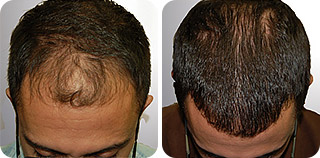 Mr. H A, Aged 28After 11 Months
Mr. H A, Aged 28After 11 MonthsI had dandruff since the beginning of the time, and unfortunately, in the past years, hair loss was added to it, and the front part of my head was out of hair. After treatment, dandruff and hair loss were wholly gone, and hair on the front part of my head started to grow again.
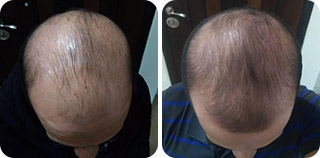 Mr. M S, Aged 35After 6 Months
Mr. M S, Aged 35After 6 MonthsAs you can see in my photo, I lost almost all my hair. After 6 months with Dr. Nasirzadeh's program, a lot of thin hair is growing on my head. I am very happy and hope that more hair will grow as I continue my treatment. Thanks to Dr. Nasirzadeh.
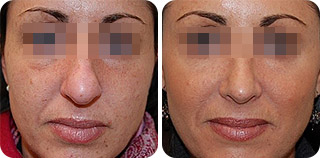 Ms. M A, Aged 42After 3 Months
Ms. M A, Aged 42After 3 MonthsWith Dr. Nasirzadeh’s recommendation, first, I did a blood test then I got my program. He advised me some supplements, creams and solutions. The spots on my face have faded, the puff under my eyes are also gone and in general, my skin is younger and brighter. I’m completely satisfied with the treatment.
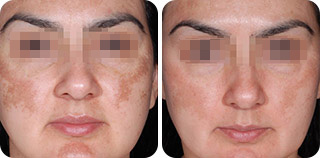 Ms. Zh K, Aged 29After 3 Months
Ms. Zh K, Aged 29After 3 MonthsThe supplements and creams that Dr. Danial recommended to me had a great effect on my skin, I’m satisfied with the result and I will complete my treatment with him for the desired result. Special thanks, doctor.
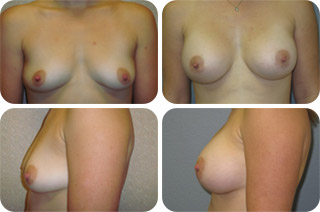 Ms. J, Aged 27After 3 Months
Ms. J, Aged 27After 3 MonthsA friend of mine introduced Dr. Nasirzadeh to me. Some blood tests were needed to begin the program, and I sent him the blood test reports. He sent me a program that included two supplements, one multivitamin and the herbal Breast Enhancement, also a moisturizer to prevent skin cracks. I was advised to take them for 3 to 4 months until my breasts reached the desired size. I am now at the end of the third month. My breasts have become bigger and are in better shape.
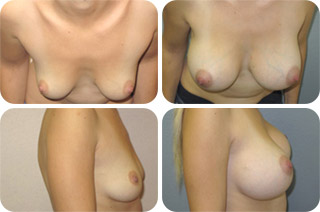 Ms. Z, Aged 25After 3 Months
Ms. Z, Aged 25After 3 MonthsDr. Nasirzadeh gave me a great program. One cream and two supplements recommended based on the results of hormonal tests. The result was what I wanted and I'm glad that I was under his treatment.
 Mr. E J, Aged 34
Mr. E J, Aged 34I had chronic sinusitis for many years, and I had to take antibiotics for that. My problem always recurred in the cold season, and it was never completely resolved until I started treatment with Dr. Nasirzadeh. My program included a number of supplements and recommendations that after a few weeks not only completely cured my sinusitis but also increased my energy level. Thank you from the bottom of my heart, Dr. Nasirzadeh
 Ms. R Y, Aged 32
Ms. R Y, Aged 32I got mild Covid-19 and isolated myself at home. I felt very tired, and my body ached, so I took an online program from Dr. Nasirzadeh to boost my immune system. After three days, I feel better, and the dizziness and other symptoms have decreased. I also took two separate programs for my parents to strengthen their immune system too.
